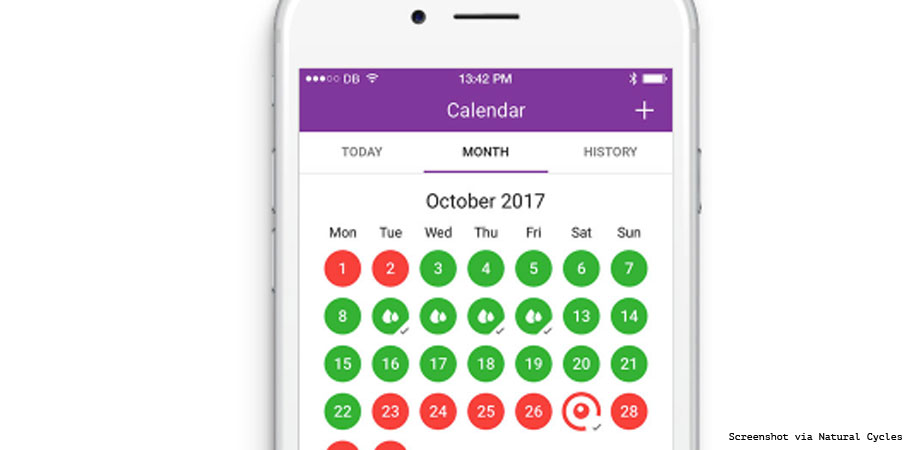A new birth control app, developed by nuclear physicist Elina Berglund Scherwitzl, has just become “the first internationally recognized method of non-hormonal contraception,” according to The Federalist.
Natural Cycles is currently awaiting approval by the U.S. Food and Drug Administration and was found, in a study of 4,000 women, to be “93 percent effective at preventing pregnancy, meaning of 100 women using the app to prevent pregnancy, 7 got pregnant in a given year of use and 93 did not.” This rate is similar to some of the more commonly used forms of contraception:
For comparison, the pill is 91 percent effective, injectable birth control is 94 percent effective, and IUDs are 99 percent effective at preventing pregnancy in typical use, according to the CDC. Another well-established non-hormonal NFP method called Creighton has been rated in a federal study as 98 percent effective at preventing pregnancy.
The app’s website tells users to “[m]easure your temperature, enter it into the app and know exactly when you need to use protection.” According to a report on Aleiteia.org, “A green day means the woman is not in her fertile period, whereas a red day signifies that a woman has entered the fertile part of her cycle and therefore she may become pregnant from unprotected sex. The temperature reading works because after ovulation, release of the hormone progesterone slightly raises a woman’s body temperature.” The report also notes:
Natural Cycles was no effectiveness slouch in its clinical trials….[T]here were 143 unplanned pregnancies, but only ten of them occurred on “green days,” when the app told them they were not fertile. This comes out to a 99.5% “efficacy rating”—equal to that of the birth control pill.
The creator told The Federalist that using the app to “track[] your body’s indicators” could give “vital info” to women about their health so they can “make informed choices in life.”








